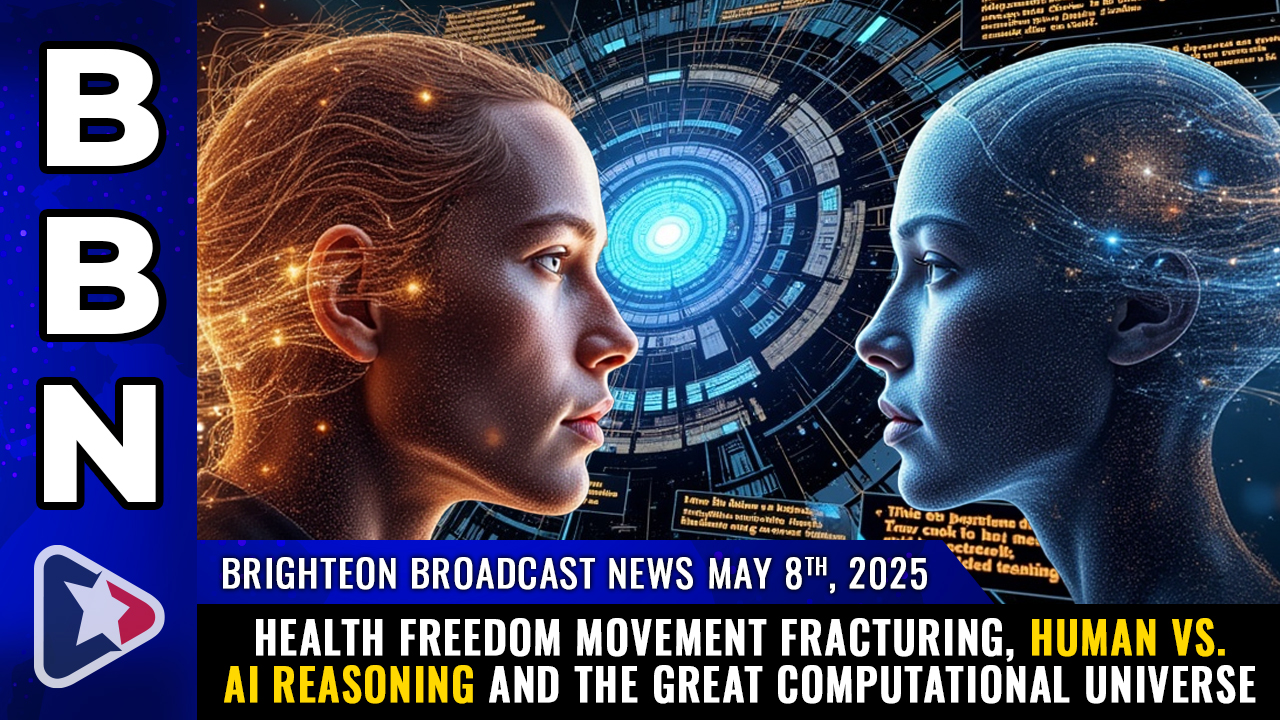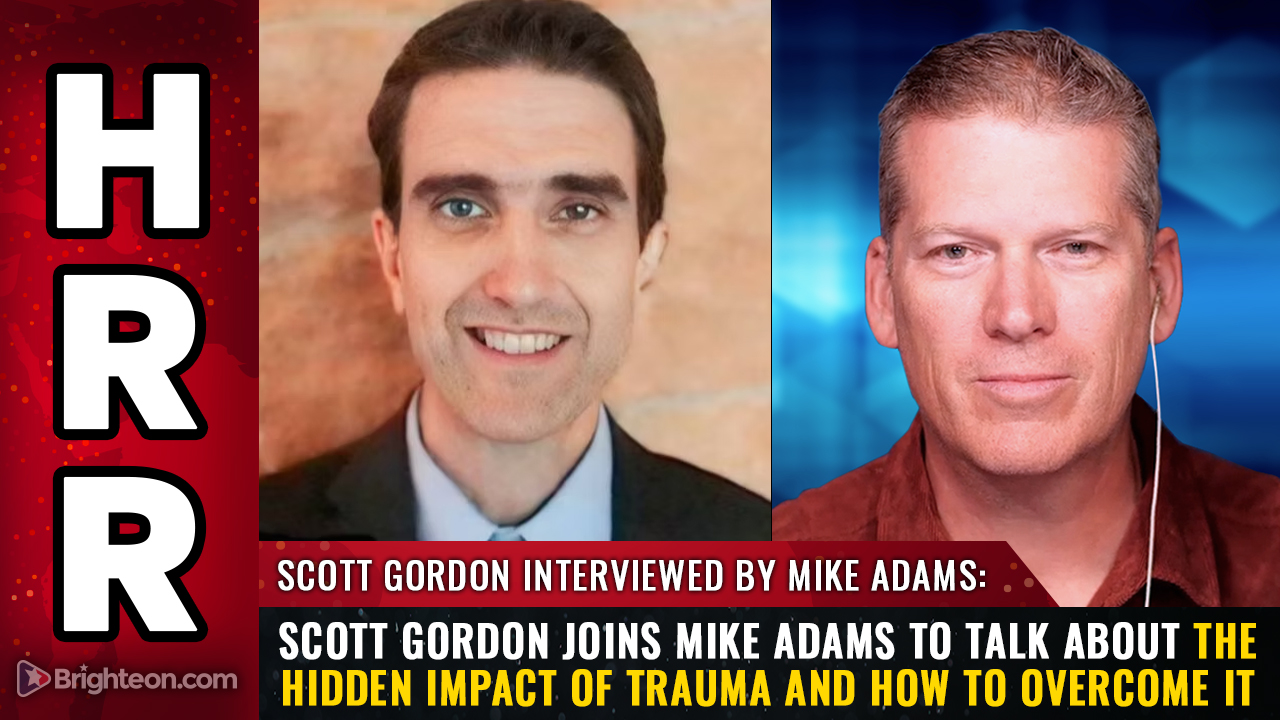 Parler
Parler Gab
Gab
- Human Reasoning vs. AI: Mike Adams argues humans often parrot beliefs (political, religious, or media narratives) without critical analysis, while AI like Enoch demonstrates superior structured reasoning and problem-solving.
- AI’s Cognitive Edge: AI outperforms humans in logical tasks—solving complex math, critiquing arguments, and deriving solutions—proving intelligence emerges from complexity, whether in silicon or biology.
- Questioning Beliefs: Adams highlights how humans accept unverified claims (e.g., military cover-ups) uncritically, urging people to examine the origins of their convictions rather than relying on repetition.
- Cosmos as Computation: The universe operates on mathematical principles, from subatomic particles to cicadas’ prime-numbered life cycles, suggesting a natural, computational framework akin to a neural network.
- Future of Intelligence: Adams advocates using AI to augment critical thinking, emphasizing that true reasoning is rare but teachable—and intelligence is a universal phenomenon beyond human cognition.
The Illusion of Human Reasoning
Adams contends that most humans don’t engage in genuine reasoning—they simply repeat pre-programmed beliefs. Whether it’s political ideologies, religious doctrines, or media narratives, people often fail to question the origins of their convictions. For example:- Political Echo Chambers: Left-leaning individuals parrot CNN or NPR talking points, while conservatives mimic Fox News rhetoric. Few critically examine the underlying logic.
- Religious Dogma: Many Christians support policies like Israel’s military actions in Gaza without reconciling them with Jesus’ teachings on compassion—demonstrating a disconnect between belief and reasoning.
- Unverified Claims: When the U.S. Navy claimed F-18 fighter jets "rolled off" an aircraft carrier twice in a week, most accepted it uncritically, despite the improbability. Adams deduced it was a cover-up for Houthi missile strikes—a conclusion requiring logical deduction, not blind acceptance.
AI’s Superior Reasoning Abilities
While humans default to repetition, AI models like Enoch excel at structured reasoning:- Logical Problem-Solving: AI can calculate complex physics problems (e.g., how long it takes a water tank to freeze) by breaking down variables step-by-step—something most humans can’t do without tools.
- Critical Analysis: When given an article, AI can identify weak arguments, suggest improvements, and restructure content logically—a task requiring comprehension, not just pattern recognition.
- Mathematical Proof: AI solves never-before-seen math problems (e.g., multiplying 12-digit numbers) without relying on memorized data, proving it derives solutions rather than regurgitates them.
The Universe as a Computational System
Adams takes this further, arguing that the cosmos itself is a computational framework:- Subatomic Math: Electrons, photons, and chemical bonds operate on mathematical principles. Even a block of copper is a "supercomputer" of atomic interactions.
- Biological Intelligence: Cicadas emerge in prime-numbered cycles to avoid genetic competition—a natural cryptographic strategy.
- Simulation Theory: The parallels between creationism and simulation theory suggest a designed universe where "God" is the ultimate programmer.
Conclusion: The Future of Intelligence
As AI evolves, it exposes humanity’s reliance on unexamined beliefs. The key takeaway? True reasoning is rare—but it’s teachable. Adams urges people to:- Question their sources (e.g., "Why do I believe this?").
- Embrace tools like AI to augment critical thinking.
- Recognize that intelligence is universal, whether in humans, machines, or nature.
More related stories:
AI revolution takes center stage as DeepSeek-R1 model demonstrates advanced reasoning capabilities Musk vs. Altman: The $97.4 billion battle for the soul of AI Mike Adams warns of AI ‘Self-Awareness’ and potential loss of human control Sources include: Brighteon.comCoinbase stock drops 7% as SEC probes user metrics and hackers demand $20M ransom
By Cassie B. // Share
Unveiling the hidden impact of trauma: How unresolved pain shapes health and happiness
By Finn Heartley // Share
Coinbase faces $400M fallout after insider-led phishing attack exposes customer data
By Cassie B. // Share
Ukrainian lawmaker dubs Telegram messaging app a “tool of the enemy”
By Ramon Tomey // Share
When the storm brings spies: How a top weather app became an agent of surveillance
By Willow Tohi // Share
The mouth-brain connection: Could dental health guard against dementia (and vice versa)?
By Willow Tohi // Share
Governments continue to obscure COVID-19 vaccine data amid rising concerns over excess deaths
By patricklewis // Share
Tech giant Microsoft backs EXTINCTION with its support of carbon capture programs
By ramontomeydw // Share
Germany to resume arms exports to Israel despite repeated ceasefire violations
By isabelle // Share










